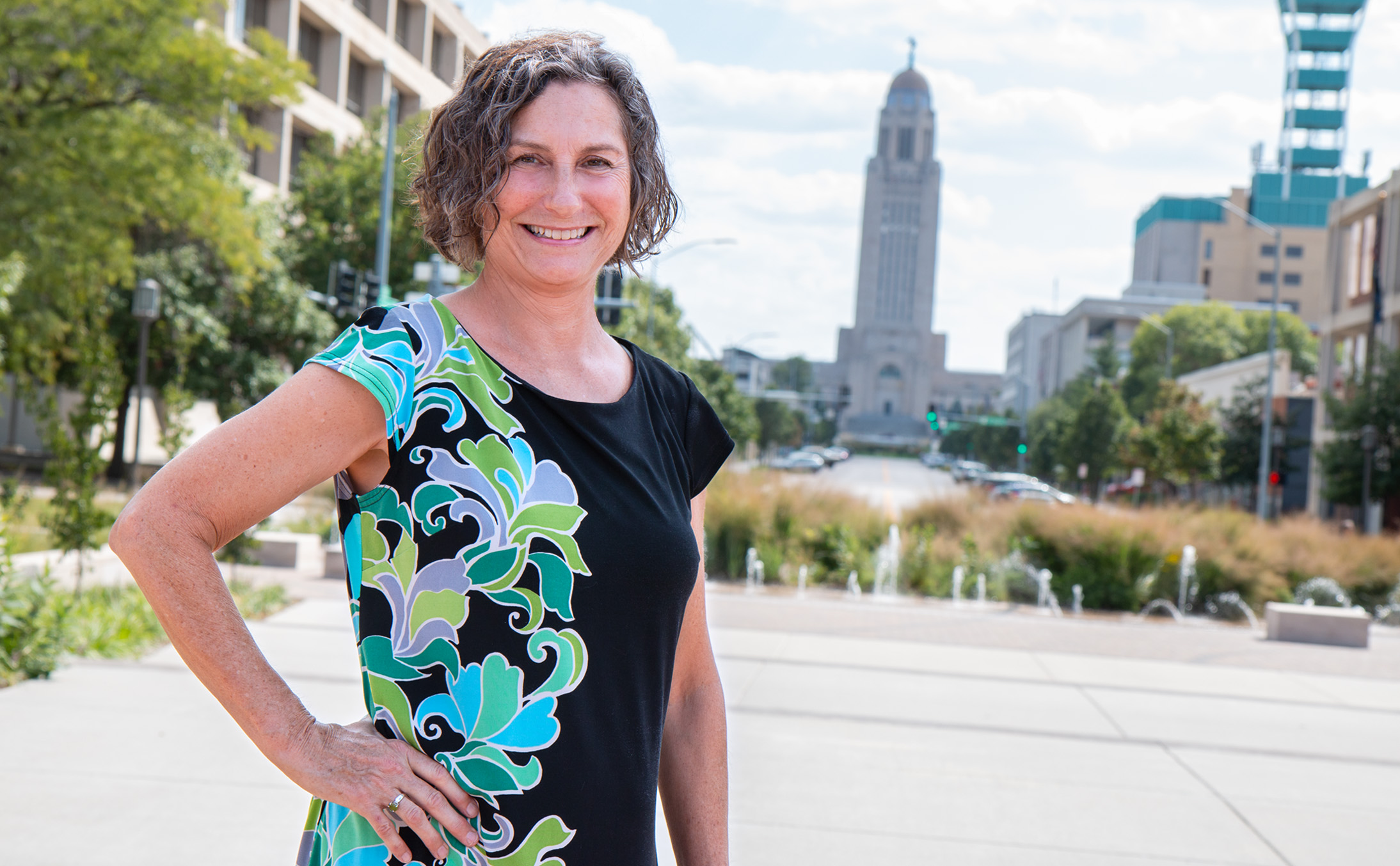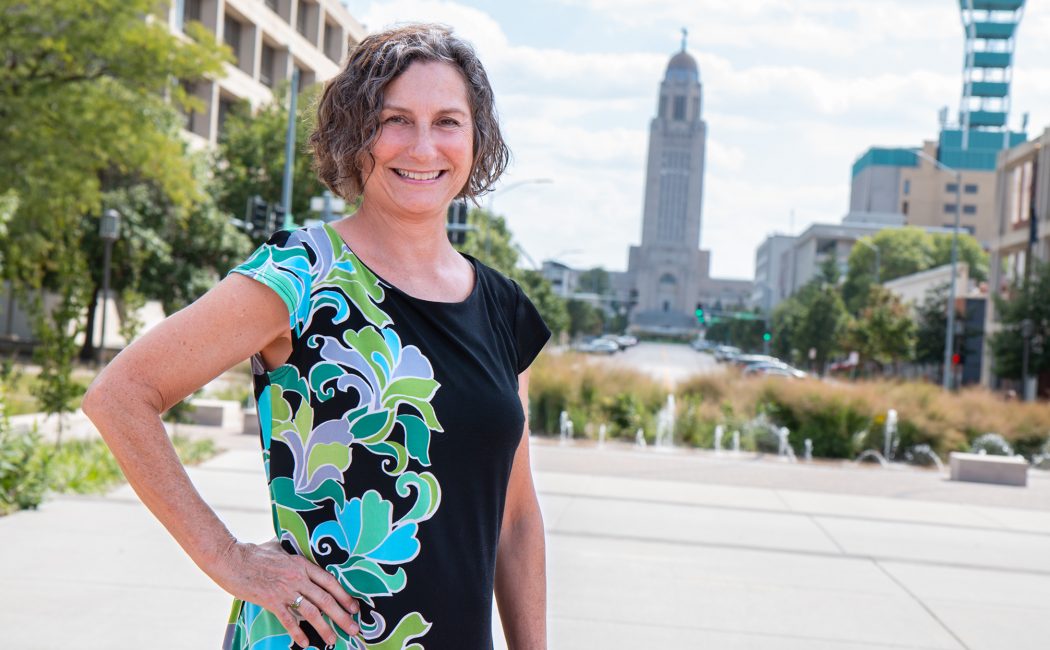
Nebraska, like other states, faces a shortage of qualified early childhood professionals to meet its demand for quality care and education. This shortage not only poses significant problems for families with young children, but also threatens the state’s future economic prosperity.
Researchers, educators and community partners from across the state are working to find a lasting solution to support, expand and diversify the state’s early childhood workforce to ensure positive developmental outcomes for children birth to age 8, while strengthening families and communities.
Funded by grants from the Buffett Early Childhood Fund and Early Educator Investment Collaborative, a three-year, $2.9 million collaborative, statewide initiative is underway to create an accessible, inclusive and sustainable system for preparing diverse early childhood professionals who will provide quality care and education for Nebraska children and families.
Responsive Equitable System for Preparing Early Childhood Teachers (RESPECT) Across Nebraska is a collaboration among multiple institutions and communities that seeks to transform the culture of early childhood teacher preparation to be more equitable and inclusive by removing barriers and forging new pathways to join the workforce.
Building on the work of the Nebraska Early Childhood Workforce Commission — a coalition of more than 40 state partners collaborating to develop a comprehensive plan to ensure high-quality early care and education from birth through third grade — RESPECT Across Nebraska will develop a competency-based framework that defines common expectations for educator preparation, which will ultimately make it easier to earn a bachelor’s degree or teaching certificate.
“While many early childhood educators in Nebraska have degrees, many have collections of credits — but no degree,” said Julia Torquati, professor of child, youth and family studies, and the project’s principal investigator. “We want to align higher education curricula and teacher certification standards to statewide-accepted competencies to enable educators to stay on track and finish their programs.”
With UNL serving as the lead entity, partners will collaborate to address barriers to higher education and a lack of accessible educational opportunities for career advancement — all of which hinder recruiting and retaining the diverse, skilled, informed workforce needed to provide high-quality early care and education to all Nebraska children.
The partnership includes six institutions of higher education, including three in the University of Nebraska system — the University of Nebraska–Lincoln, University of Nebraska at Kearney and the University of Nebraska at Omaha — and three additional colleges, including Little Priest Tribal College, the Nebraska Indian Community College and Metropolitan Community College. Along with the Buffett Early Childhood Institute, other core partners in the project include the Nebraska Department of Education/Nebraska Council on Teacher Education, the Nebraska Department of Health and Human Services–Child Care Licensing and the Nebraska Association for the Education of Young Children.
Along with Torquati, other UNL co-PIs include Kelley Buchheister, associate professor of child, youth and family studies; Christine Kiewra, assistant professor of practice, child, youth and family studies; Nancy Engen-Wedin, lecturer, child, youth and family studies; Soo-Young Hong, associate dean for academic programs and associate professor of child, youth and family studies; Lisa Knoche, CYFS co-director and research associate professor; Amanda Morales, associate professor, teaching, learning and teacher education; and Rachel Schachter, associate professor of child, youth and family studies.
Currently, Nebraska early childhood teachers must follow various sets of educational competencies, depending on children’s age and ability status, and the setting in which the educators work — public schools or private programs, for example.
While many early childhood educators in Nebraska have degrees, many have collections of credits — but no degree. We want to align higher education curricula and teacher certification standards to statewide-accepted competencies to enable educators to stay on track and finish their programs.”
— Julia Torquati, principal investigator
The team is working to synthesize competency sets to create a framework of “non-negotiables” — knowledge, skills and dispositions that must be demonstrated to earn an initial certificate in early childhood education. It would also establish a statewide standard that would allow any previous early childhood coursework to count toward a degree or certification.
“For example, if someone has worked in the early childhood education field for 15 years and has completed a well-known professional development program focused on social-emotional development, they shouldn’t need to take a class in social-emotional development,” Torquati said. “We’re looking for ways we can assess prior experiences and skills to add to college credits so that everything someone does will count.”
Sharing information about available resources and supports for educators to earn their credentials is crucial, Torquati said.
“Life happens, and there are a variety of reasons educators may pause obtaining their degree or certification,” Torquati said. “Sometimes, it’s difficult to get back on track. For many, if they don’t know it’s possible to compete their degree, they won’t look for those supports and resources.”
For example, one relatively little-known resource is the Nebraska Promise, a program that covers undergraduate tuition at NU’s four campuses and its two-year technical college, Nebraska College of Technical Agriculture, for those who meet academic and income qualifications.
“The days of expecting people to just come to campus and complete a degree in early childhood education are waning,” Torquati said. “Community-based and culturally sustainable methods are the future of preparing educators, and we want to identify the best ways to provide people with those opportunities.”
Learn more about this project in the CYFS Research Network. This project aligns with the UNL Grand Challenge of early childhood education and development.
